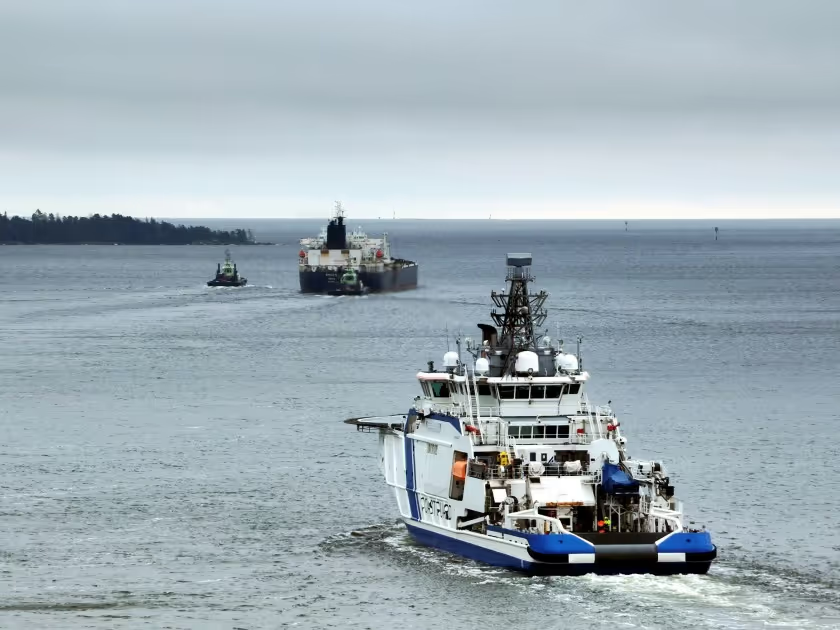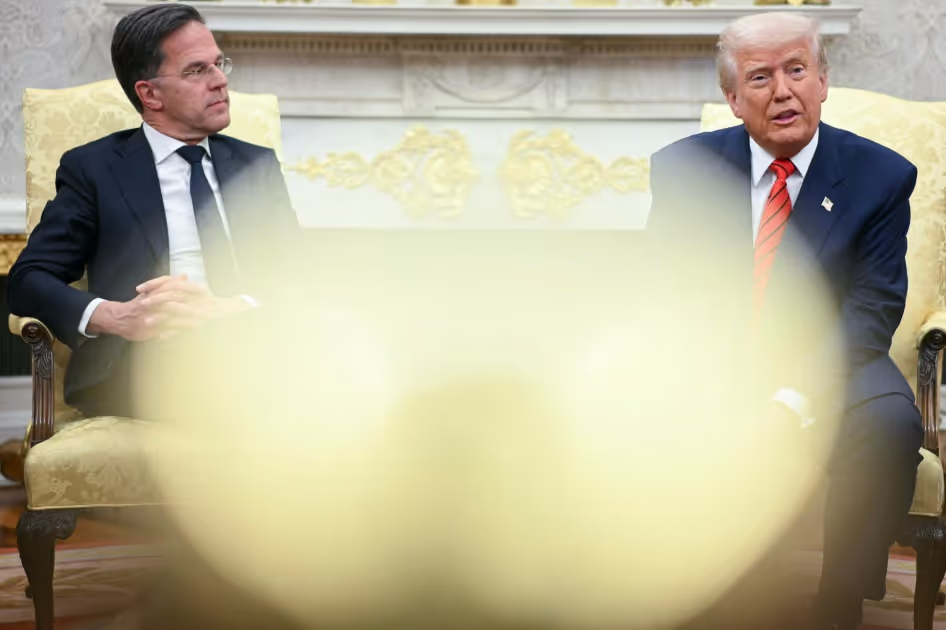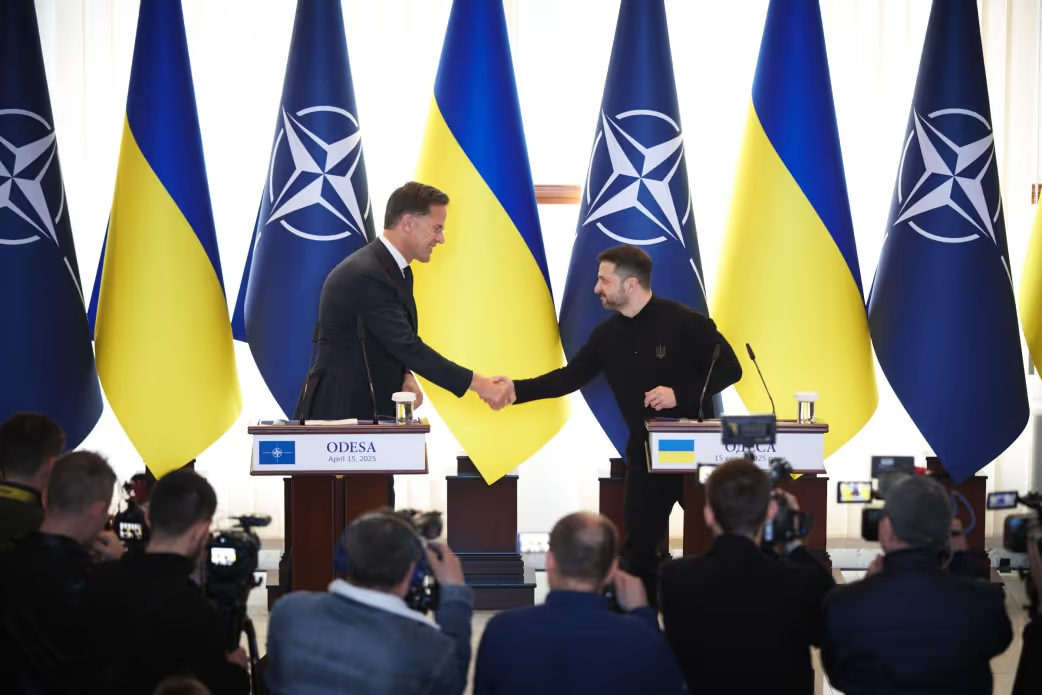Support Sestry
Even a small contribution to real journalism helps strengthen democracy. Join us, and together we will tell the world the inspiring stories of people fighting for freedom!
IWONA REICHARDT: You were in the United States during the final stages of the presidential campaign, and you witnessed the results in Ukraine. Were they a surprise to you?
TAMAR JACOBY: I was – it was a punch in the gut. But I shouldn't have been surprised. Now that I look at the results, I think we all should have seen it coming. We told ourselves it was 50-50, but it wasn't 50-50. Trump won by a significant margin. I don't blame the polling – I don’t think that’s the main problem. I think that people just didn't want to see a Trump victory coming. I certainly didn't want to see it. Now we need to accept that Americans have embraced Donald Trump.
It's hard to understand why exactly. Is it that voters don't believe he'll do all the crazy things he says he will do? Or is it that they really just don't like the direction that Democrats were taking the country? Why this wholehearted embrace? I’m still struggling to understand it. But clearly Americans have embraced Trump, and we are going to have to accept the choice and live with it for four years.
Speaking of the crazy stuff you mentioned, one of Trump’s promises is to end the war in Ukraine in a day, something which seems inconceivable…
Yes, Ukrainian social media had a field day with that in the first days after the election: “The clock is ticking. Don, where is the peace?” But jokes aside, I don't think he will be able to end the war in a day. I think he will find it harder to end than he thinks.
The big question will be what kind of deal does he propose? I'm very concerned about some of the deals that his advisors have suggested. The second question is how will Putin react? The response from Russia in the last two or three days has not been particularly forthcoming. The third question will be how seriously will Trump stick with his proposal? If you remember his negotiations with North Korea in the first term, he gave up after just a few days of talks.
So yes, there are many questions about his promise to end the war in 24 hours. Also, when he says he's going to walk away from Ukraine – in fact he hasn't said that exactly, but people have read his comments to mean that. We don’t know what he intends. Does he mean no new weapons from the US, or an end to all support? Or does he mean that the US will continue to provide intelligence and let the Europeans provide military aid, including by purchasing US weapons?
Bottom line: there are many versions of what could happen now, and I think people should focus on making arguments that might persuade Trump to do the right thing rather than immediately assuming he’ll do the worst
What do you think success would mean for Trump when it comes to ending the war in Ukraine?
We don't know yet. Trump is a very reactive, emotional person. So, a lot depends on how it plays out. He won’t react well if he feels that Putin is snubbing him – that could work to Ukraine’s advantage. And he won’t like it if it looks like America has somehow failed and betrayed its ally. So we just have to see. There are many unknowns and many things that need to play out. What’s important now is to try to help Trump see Ukraine in a frame that could be positive.

This gets us to the Trump-Putin relationship. Who is Putin for Trump? A friend or a foe?
Unclear. But he is still definitely a foe for Ukraine and the rest of the West. And nothing suggests a change of attitude among ordinary Russians. Ukrainian social media monitors Russian social media very closely, and there’s been a lot of talk in recent days about how America is still Russia’s enemy and America will always be Russia’s enemy. One Ukrainian headline quoted a Russian saying, “Same jerk, different face” – meaning Trump is no different from Biden, And a lot of that attitude is fanned by Putin and his allies.
The big question about the negotiations is what will Trump put on the table?
If Putin walks away, I can imagine there would be consequences – I could see Trump hammering him hard. The question is, why would he walk away? If Trump proposes a freezing of the front line and a Ukrainian promise not to join NATO, why would Putin walk away? That’s my biggest concern. But again, we just don't know.
Also, let’s not forget about the fourth big player – Europe. You have Ukraine, you have the US, you have Russia, but you also have Europe. And Europe has to get its act together and step up. We could see a scenario where Trump backs away but says “Europe, it’s your responsibility”. Europe then has to find the money and the weapons, and step in. Europeans have been talking about these responsibilities since the war began, but they haven't really done much to increase their military capacity. Poland is spending more, but Germany is still spending almost nothing, and the German government has just collapsed. That is why I'm as concerned about what's going on in Europe as I am about what's happening in the US.
Do you think Europe, and especially countries such as Poland or the Baltic states, should worry right now? Does Trump’s victory mean we are more at risk of war coming to our door?
The bottom line is that Europe has to step up. No matter who is president of the United States. Even if Kamala Harris had won, Europe would need to get going. It is not enough to talk the talk – “We have to spend more”. Europeans have to allocate the money and cooperate with each other to make every dollar go as far it can. And they have to do it efficiently. There has been a lot of talk, but the train has not left the station. I understand – things take time in Brussels, and it's complicated. But come on, hurry up. People are dying in eastern Ukraine. And this war will come to Europe’s doorstep. The threats are already on your doorstep. And in this regard, I think Trump’s election might actually help – might push the Europeans to act in a way that the situation on the front line hasn’t pushed them.
Speaking about the front line, and the overall situation in Ukraine, all the prognoses are not optimistic…
It's not good. The Russians are relying more and more heavily on glide bombs, a brutal tactic. They destroy the place they're trying to take, and then they send in men. And nobody has figured out how to counter these attacks. These are old-fashioned aerial bombs with wings, and they're huge. When they hit, they can destroy whole buildings. And that's what the Russians have done – destroyed city after city.

Meanwhile, Ukraine’s ammunition is dwindling, and the men are tired. As I understand things, this summer’s mobilization drive has largely fizzled out, and desertions are up. The Ukrainian public is still hanging in there. Opinion polls don’t show much change in attitudes toward the war over the last six months.
Life is amazingly normal in Kyiv. For me, it's great to be back. But people are tired, and I think they are waiting to see how Trump’s election will change the dynamic
Ukrainians are so tired of fighting with one hand tied behind their back, getting some American and European weaponry but not enough and not permitted to use it as they think it should be used. I lot of people are eager for something bolder – and many think that may be Trump. Many people are worried about him, but some people are hopeful. Maybe Trump will break something – will somehow break the logjam.
Do you feel the sense of abandonment in Ukraine? Do Ukrainians feel abandoned by the West, by Poland, by the US?
Those countries aren’t all the same. I think most Poles understand what is going on in Ukraine – understand the existential Russian threat. Most Europeans get it. But most Americans do not get it. They don't understand the stakes or the magnitude of the threat, unfortunately. For most Americans, this war is very far away. And their view of the stakes is more transactional than existential. But even in Europe, let’s be honest, there is more talk than action. Abandonment is a big word, but maybe it's not far from the truth. It's becoming a lonely fight for Ukraine.

What is America going to do now, during this period when Joe Biden is a lame duck and Donald Trump is president-elect?
I do not think there will be another supplemental funding package from Congress. I just don't see it. Both the House and the Senate are now Republican and under Trump’s sway. Still, a few things could happen between now and January.
We haven't spent all the money from the last supplemental, and we should rush to do that
Senator Lindsey Graham has an interesting idea: giving Ukraine the same status as Israel, opening the way to much wider access to US weapons. It's not quite NATO membership, but it's a lot better than what Ukraine has now. We should also be looking at the rules that govern how American defense contractors can cooperate with contractors in other countries.
Many of these are small things, but the point is it's way too soon to give up. There are things that can be done in the US, things that can be done in Europe. Maybe most important is what Zelenskyy and others are doing – thinking about what arguments will be most compelling to the Trump team. All of these steps can make a difference, and we have to go on. The war is not over. Ukrainians are still fighting, and Russia looks as menacing as ever, for Ukraine and the rest of Europe.
Cover photo: 24th Mechanised Brigade named after King Danylo of the Ukrainian Armed Forces/AFP/East News



























